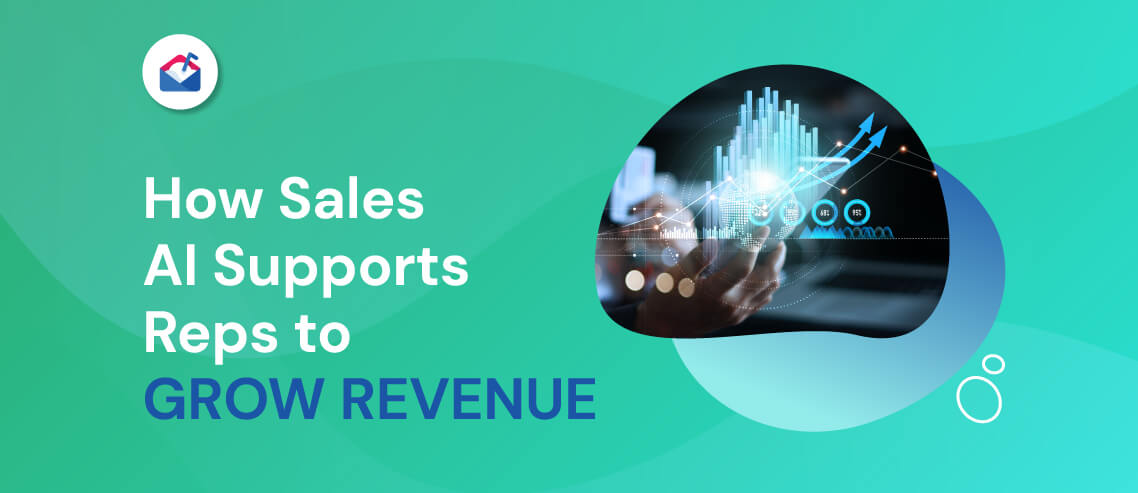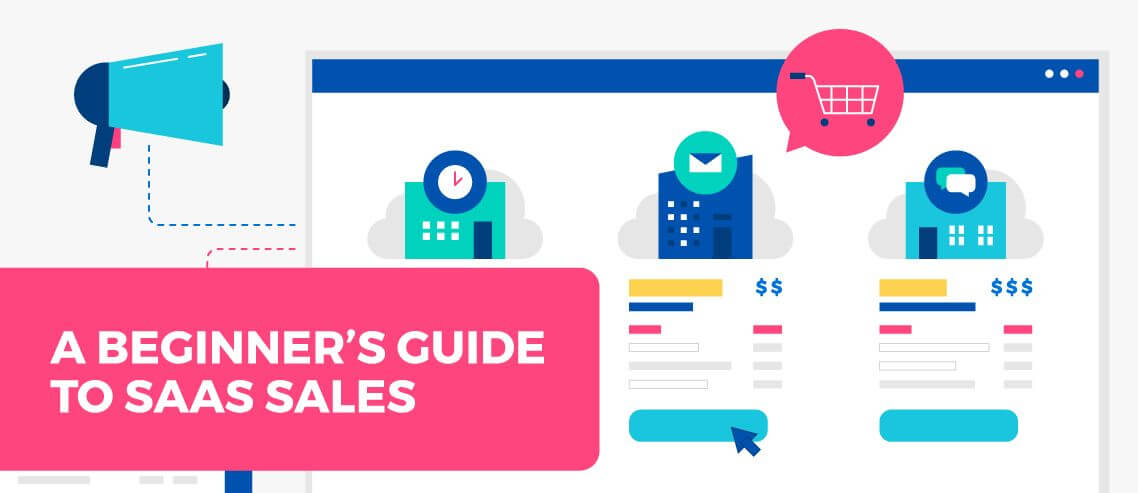How Sales AI Supports Reps to Grow Revenue

Contents
Artificial intelligence has been a game changer. From medicine to finance, advertising to real estate, it seems that no industry has been spared the influence of artificial intelligence.
Sales is no exception. Some of the world’s brightest minds have been finding new ways to implement AI in sales contexts to help support reps and grow revenue. Here, we’ll tell you how.
What is Artificial Intelligence in Sales?
Artificial intelligence is an emerging technology that uses various algorithms to complete tasks and solves problems in the same way that humans do — using a form of intelligence. These algorithms are very complex, to the point that their developers often don’t fully understand them themselves. However, regardless of whether we understand them, it is clear that AI can help identify patterns and solve certain problems faster than humans in some cases.
Artificial intelligence in sales is simply the application of AI tech to the sales field. The specific implementations vary, but some include prioritizing leads, predicting future deals, and using AI to complete administrative tasks.
Essentially, AI can both automate some of the more menial parts of sales, freeing up reps to spend more time on revenue generation, or it can be used in tandem with a sales rep to better identify potentially lucrative deals and prioritize which prospects to pursue. Overall, companies that use AI tend to have better sales performance.
The numbers show the same story. According to an analysis in the Harvard Business Review, AI can create $1.4 to $2.6 trillion in marketing and sales value.
What Data Does a Sales AI Want and Need?
Artificial intelligence tech is able to identify patterns and help sales reps by processing data — and typically lots of it. That means that if you want AI to help improve your sales efforts, you need to provide it with the right kind of data.
To get the best results, you’ll need to supply it with four different kinds of data:
- Descriptive Data: Describes the characteristics of all your prospects.
- Activity Data: Describes the actions you and your prospects have taken, such as calling, emailing, etc.
- Contextual Data: Provides insight into the context of other data, such as what the stock market was like, etc.
- Results Data: Characterizes the result of your sales efforts. Essentially, did the deal go through or not?
How Can Sales AI Support Your Team?
AI can be applied to many aspects of the sales process. Here are a few of its most common applications.
Make Sales AI Your Admin Assistant
One of the unfortunate realities of the current sales landscape is that sales reps spend a lot of time simply taking care of administrative tasks. Whether it’s entering data into the CRM or sending out form emails, menial administrative tasks take away a lot of time from the real meat of the sales profession: selling products.
In fact, a recent study states that a whopping 40% of a sales rep’s work can be automated, meaning that sales rep’s could almost double their time spent making sales.
AI can help sales pros stay more productive by handling all their administrative tasks for them. AI tools can send automated emails, automatically enter data into CRMs, and much more. Overall, it gives sales reps the ability to truly focus on what they’re there to do: sell.
Prospect Leads That Don’t Go Stale
When you’ve got a list of two hundred leads, how do you know which one to call first? To generate the most revenue, you need to be able to prioritize leads, which is a difficult task in itself.
AI can help identify which leads to contact first. To do this, AI tools will look through tons of data to find patterns that human minds may have missed. Part of the magic of AI is that it can improve itself and continue learning, so over time, it can build better and more predictive tools.
Some of the data that the AI will look at might include white paper downloads, links clicked, the size of the prospect’s company, where they’re located, and more.
Predict Future Deals
One of the main benefits of AI is its predictive ability. By finding patterns that humans are unlikely to find, it can forecast all sorts of things from revenue to the weather.
In sales, AI can make lots of useful predictions, like which deals are most likely to close, which prospects to focus on, and which customers may be interested in specific products.
Although none of these predictions will ever be 100% accurate, they do serve as solid general guidelines that you can use to focus your efforts.
Plus, you can use AI’s predictions to forecast your own sales team’s performance for internal use and strategizing.
Personalize Sales Content
Studies show again and again that leads respond better to personalized content. Even something small, like including your name in an email, can be significantly more effective than no personalization at all.
Of course, one of the benefits of AI is that it doesn’t relegate itself to simple personalizations. AI can make unique and complex personalizations that stand out and draw engagement out of your prospects.
For example, you could have an AI use data from your CRM to determine which types of personalizations are most effective for various segments. Then, you can have the AI create those personalizations itself, without any user input required.
AI is still in its infancy, so functionalities like this are not readily available, but the core technology is there, and the possibilities are nearly endless.
Build Stronger Client Relationships
One of the most fascinating aspects of AI is that it can sometimes understand people better than other real people can. Consequently, it can help sales reps build better relationships with their clients by understanding what makes them tick.
AI can do this with a two-pronged approach. First, it can automatically collect relevant customer data that can be used to draw insights. Then, it can find patterns in that data and provide useful advice on how to proceed with specific clients. For example, it can find out what your client values and process orders for them.
AI and Humans Are Strongest Together
Although people often talk about robots taking over the world, that’s a distant future that may never come to pass. As of right now, humans and AI are strongest when they cooperate and work together. Relying on either one entirely will inevitably lead to some opportunities being overlooked.
Sales reps can include AI in their tech stacks to free up their time spent on admin tasks, to identify patterns, and to personalize their sales material. However, as powerful as AI is, it currently still needs a human element to make sure that it is moving in the right direction. Ultimately, humans need to make executive decisions about the insights and advice that AI provides.
Key Takeaways: How Sales AI Supports Reps to Grow Revenue
AI is an emerging technology that shows great promise in providing new insights into a variety of fields. In sales, AI can support reps by automating their more menial tasks, helping them find new ways to group their prospects, prioritize their leads, and much more.
Although the technology is powerful, it’s still in its infancy, and it’s strongest when there’s a human touch as well.





